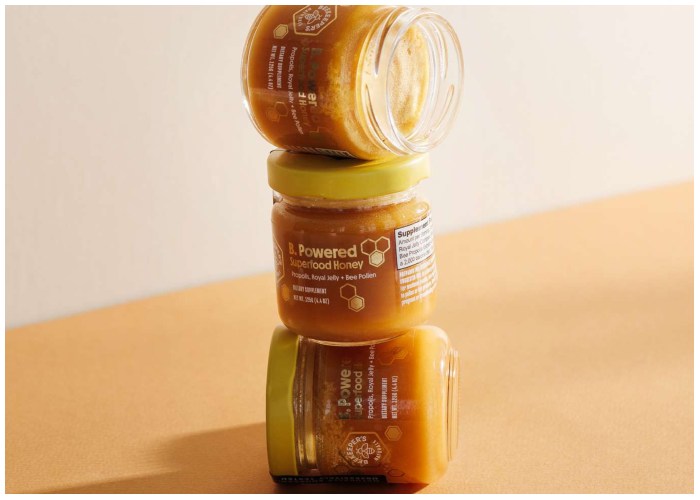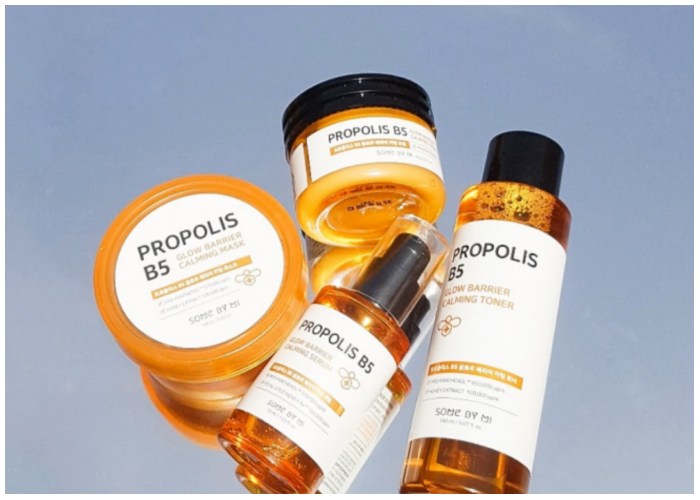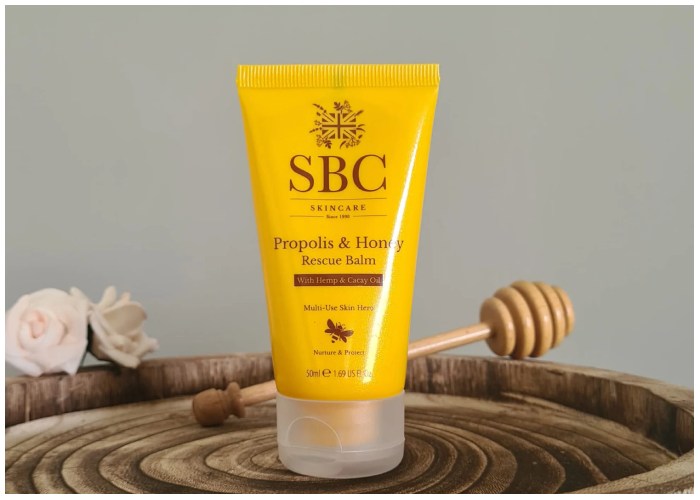Propolis might not be as famous as honey, but it’s quickly becoming one of the hottest ingredients in the beauty and wellness world. With its impressive antibacterial, antifungal, antiviral, antioxidant, and anti-inflammatory properties, it’s no wonder propolis is generating so much buzz on social media. The hype is real, and the market for this wonder ingredient is expected to soar to $881.96 million by 2028. But what exactly is propolis, where does it come from, and what can it do for you? Let’s dive into the details of this bee-produced marvel and explore why it’s earning a spot in your skincare routine and medicine cabinet.
What is Propolis?
If you thought bees only gave us honey, think again. Propolis, also known as “bee glue,” is a resinous substance that bees produce to coat their hives, effectively acting as a barrier against viruses and bacteria. It’s like the bees’ own version of a high-tech security system, but with a natural twist. Propolis is made from a mix of resins, beeswax, essential oils, and pollen, with its exact composition depending on the plants the bees collect it from. This sticky substance isn’t new; it’s been used for centuries in various cultures to promote healing and fight off infections. Nowadays, propolis is making a comeback as a natural antibiotic that can be applied both topically and taken orally to boost the immune system and combat a wide range of pathogens.

The Benefits of Propolis for Skin
Propolis is more than just a trendy ingredient—it’s a powerhouse for your skin. Thanks to its antimicrobial and anti-inflammatory properties, it’s particularly beneficial for those with acne-prone skin. Propolis not only helps keep breakouts at bay, but it also promotes the healing of wounds, cuts, and minor burns. Its antioxidant properties make it a great ally in the fight against premature aging by protecting your skin from free radical damage. Whether you’re dealing with scars, eczema, or simply looking to keep your skin in top shape, propolis has something to offer.
So, when should you incorporate propolis into your skincare routine? Its antioxidant properties make it ideal for your morning regimen, but it can also be used at night for its reparative benefits. The best approach depends on the product you’re using—most propolis-infused cosmetics come in the form of creams. A typical routine would involve cleansing your face, applying eye cream, a treatment serum, moisturizer, and finally sunscreen.

Who Should Use Propolis?
Almost anyone can benefit from propolis, but there’s a big caveat—if you’re allergic to bees or honey, you should proceed with caution. Those with known allergies to bee stings should avoid propolis altogether to prevent potential reactions, such as redness, itching, or burning. If you’re not allergic, propolis can act as a protective shield for your skin, much like it does in a beehive. It creates a barrier that helps prevent bacteria from adhering to the skin while promoting regeneration. Whether you’re treating a scar or managing eczema, propolis can accelerate healing and minimize marks, offering protection, healing, and regeneration all in one.
How Should I Consume Propolis?
Beyond skincare, propolis offers a host of health benefits. It’s commonly available in sprays, tablets, syrups, and lozenges, making it a go-to remedy for throat conditions. One of the most traditional ways to consume propolis is as an infusion or diluted extract in water. Drinking it two or three times a day can help soothe sore throats by hydrating and calming irritated mucous membranes. Whether you’re looking to boost your immune system or simply keep a sore throat at bay, propolis is a versatile natural remedy that’s worth having on hand.

Propolis is more than just a buzzword—it’s a natural powerhouse that’s been used for centuries to heal and protect. Whether you’re interested in its skincare benefits or looking for a natural way to support your immune system, propolis has a lot to offer. Just be sure to check for allergies before diving in, and you’ll find that this bee-produced wonder can become a staple in your wellness routine. With the market for propolis set to soar, now’s the perfect time to explore its many benefits and see what all the buzz is about.